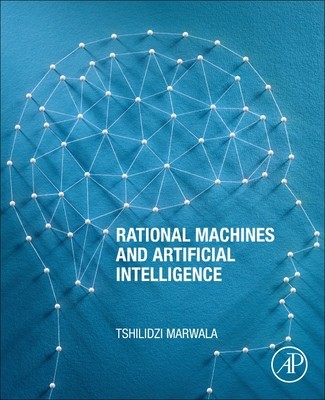
- We will send in 10–14 business days.
- Author: Tshilidzi Marwala
- Publisher: Academic Press
- ISBN-10: 0128206764
- ISBN-13: 9780128206768
- Format: 19.1 x 23.5 x 1.5 cm, minkšti viršeliai
- Language: English
- SAVE -10% with code: EXTRA
Reviews
Description
Intelligent machines are populating our social, economic and political spaces. These intelligent machines are powered by Artificial Intelligence technologies such as deep learning. They are used in decision making. One element of decision making is the issue of rationality. Regulations such as the General Data Protection Regulation (GDPR) require that decisions that are made by these intelligent machines are explainable. Rational Machines and Artificial Intelligence proposes that explainable decisions are good but the explanation must be rational to prevent these decisions from being challenged. Noted author Tshilidzi Marwala studies the concept of machine rationality and compares this to the rationality bounds prescribed by Nobel Laureate Herbert Simon and rationality bounds derived from the work of Nobel Laureates Richard Thaler and Daniel Kahneman. Rational Machines and Artificial Intelligence describes why machine rationality is flexibly bounded due to advances in technology. This effectively means that optimally designed machines are more rational than human beings. Readers will also learn whether machine rationality can be quantified and identify how this can be achieved. Furthermore, the author discusses whether machine rationality is subjective. Finally, the author examines whether a population of intelligent machines collectively make more rational decisions than individual machines. Examples in biomedical engineering, social sciences and the financial sectors are used to illustrate these concepts.
EXTRA 10 % discount with code: EXTRA
The promotion ends in 23d.20:08:02
The discount code is valid when purchasing from 10 €. Discounts do not stack.
- Author: Tshilidzi Marwala
- Publisher: Academic Press
- ISBN-10: 0128206764
- ISBN-13: 9780128206768
- Format: 19.1 x 23.5 x 1.5 cm, minkšti viršeliai
- Language: English English
Intelligent machines are populating our social, economic and political spaces. These intelligent machines are powered by Artificial Intelligence technologies such as deep learning. They are used in decision making. One element of decision making is the issue of rationality. Regulations such as the General Data Protection Regulation (GDPR) require that decisions that are made by these intelligent machines are explainable. Rational Machines and Artificial Intelligence proposes that explainable decisions are good but the explanation must be rational to prevent these decisions from being challenged. Noted author Tshilidzi Marwala studies the concept of machine rationality and compares this to the rationality bounds prescribed by Nobel Laureate Herbert Simon and rationality bounds derived from the work of Nobel Laureates Richard Thaler and Daniel Kahneman. Rational Machines and Artificial Intelligence describes why machine rationality is flexibly bounded due to advances in technology. This effectively means that optimally designed machines are more rational than human beings. Readers will also learn whether machine rationality can be quantified and identify how this can be achieved. Furthermore, the author discusses whether machine rationality is subjective. Finally, the author examines whether a population of intelligent machines collectively make more rational decisions than individual machines. Examples in biomedical engineering, social sciences and the financial sectors are used to illustrate these concepts.


Reviews